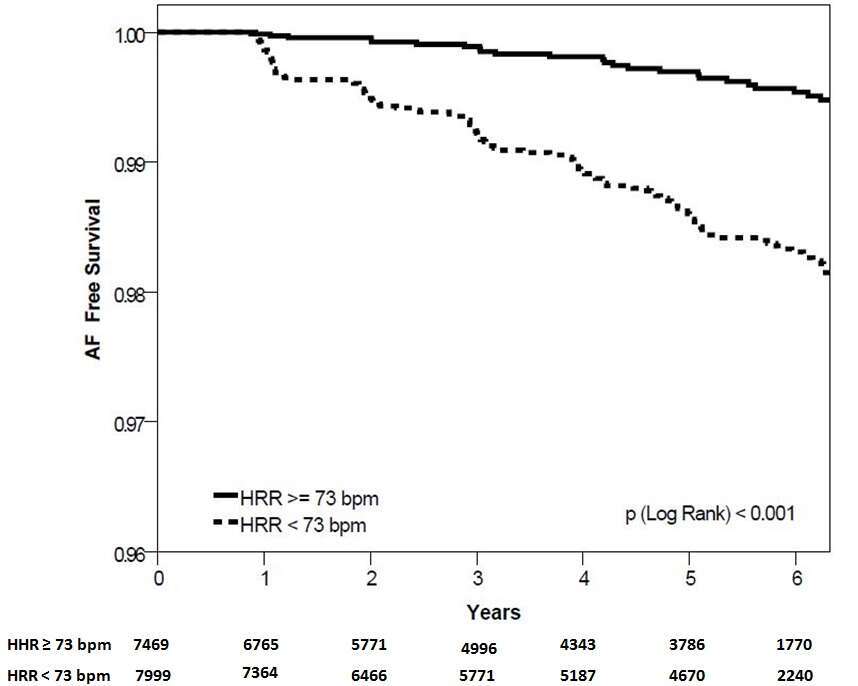
Poor Heart Rate Reserve Predicts New Onset Atrial Fibrillation in Middle Aged Adults
2Department of Internal Medicine C, The Chaim Sheba Medical Center, Tel-Hashomer, Israel, ramat gan, Please Select
3Institute for Medical Screening, The Chaim Sheba Medical Center, Tel-Hashomer, ramat gan, Please Select
 Background: Autonomic dysfunction is associated with the atrial arrhythmogenesis. The purpose of this study was to investigate the association between heart rate reserve (HRR), and new onset atrial fibrillation (AF) among middle-aged adults.
Background: Autonomic dysfunction is associated with the atrial arrhythmogenesis. The purpose of this study was to investigate the association between heart rate reserve (HRR), and new onset atrial fibrillation (AF) among middle-aged adults.
Methods: We investigated 15,729 apparently healthy self-referred men and women who underwent periodic health screening examinations between the years 2000-2015. All subjects were free of AF and had completed maximal exercise stress test according to the Bruce protocol at their first visit.
Results: Mean age of study population was 47.8 ± 10 years and 73% were men. Median HRR was 73 ± 3 bpm. A total of 288 (1.81%) incident events occurred during 6.5 ± 4 years. Kaplan Meier survival analysis showed that the cumulative probability of AF at 6 years was higher among subjects low HRR ( Conclusions: Poor HRR is independently associated with the development of new onset AF. Further studies are warranted to elucidate the relationship between changes in normal autonomic tone and the pathogenesis of AF.
Powered by Eventact EMS